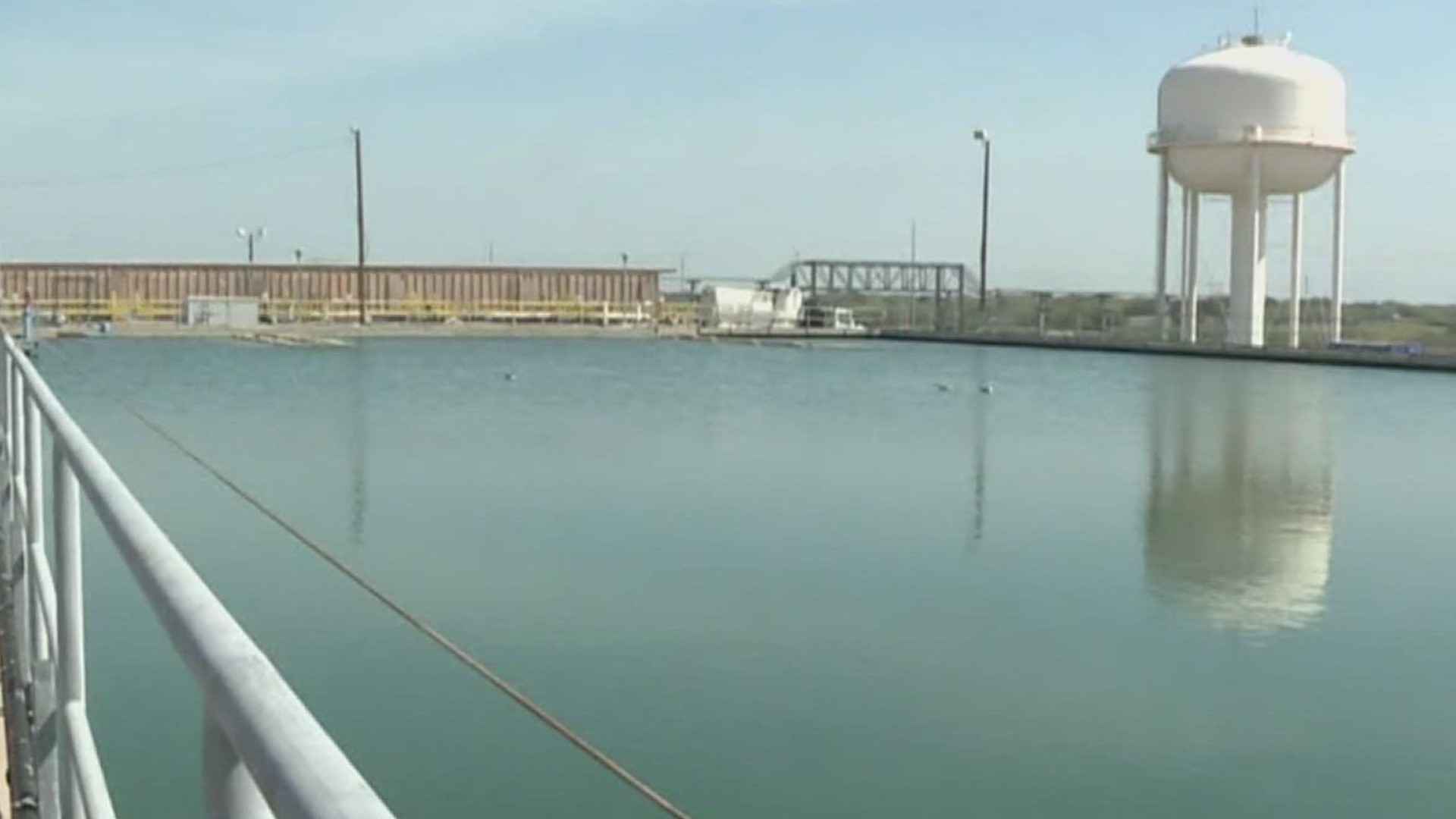CORPUS CHRISTI, Texas —
The City of Corpus Christi could potentially move to Stage 2 water restrictions this week.
It would be the first time in almost a decade that Stage 2 restrictions would be implemented.
City leaders confirmed to 3NEWS that the combined water levels of Lake Corpus Christi and Choke Canyon Reservoir are currently at 29.9%.
Those combined lake levels are what the City of Corpus Christi uses as a basis for drought conditions. City leaders said they will continue to monitor those levels daily and receive a weather briefing from the National Weather Service at least once a week.
"Once we see two consecutive days of below 30%, then we will declare Stage 2 water restrictions, which is consistent with the drought management plan," Corpus Christi City Manager Peter Zanoni said.
Corpus Christi has been in Stage 1 water restrictions for more than a year and a half, which Zanoni said means residential, commercial and large volume users can not use their irrigation system more than once a week.
"That's been something we've had to place on our customers for over 600 days, and really, nobody wants to be in that position,” Zanoni said. “So, we're watching this closely, as well, for Stage 2."
Zanoni said that the goal of water restrictions is to conserve as much water as possible to get through long periods with little rain. He explained the differences between the two stages and what it means for water usage in Corpus Christi.
"The big difference is that watering for landscaping, whether large volume user locations, commercial or residential customers will now be once every other week," Zanoni said.
About 500,000 people rely on Corpus Christi for water every day across seven counties.
Zanoni said a new water source was last added by the city in the 1980s. Mary Rhodes Pipeline and O.N. Stevens Water Treatment Plant improvements, looking at groundwater resources and a seawater desalination project are three strategies the city is using to catch up and ensure water security.
He added that conserving water now can help when there is an increased demand for water in swimming pools, irrigation and agriculture throughout the year.
"We want to conserve now to make it through those long stretches of hot weather and weather that causes a lot of evaporation and a lot of demand on the water," Zanoni said.
If the city does implement Stage 2 water restrictions, combined lake levels would have to decrease below 20% for them to move to Stage 3.
The drought contingency plan does include potential surcharges for water in Stage 2, but Zanoni said the city does not plan to active them.
More from 3News on KIIITV.com:
- Nueces County Commission candidate dies on eve of election
- WATCH: 3NEWS Women's History Month Panel 2024
- Teenager shot in Molina neighborhood dies from injuries
- Experts weigh in on warning signs to look out for when it comes to online predators
- Concerns mount over safety after hit-and-run on SPID frontage road
- Hundreds of stash houses discovered since 'Operation Lone Star' began in 2021
- Boat washes up south of Bob Hall Pier, after investigation, gets new home
- Rodeo Corpus Christi concert lineup looks like Nothin' But A Good Time
Subscribe to our YouTube channel for your daily news and exclusive extended interviews.
Do you have a news tip? Tell 3!
Email tell3@kiiitv.com so we can get in touch with you about your story should we have questions or need more information. We realize some stories are sensitive in nature. Let us know if you'd like to remain anonymous.

